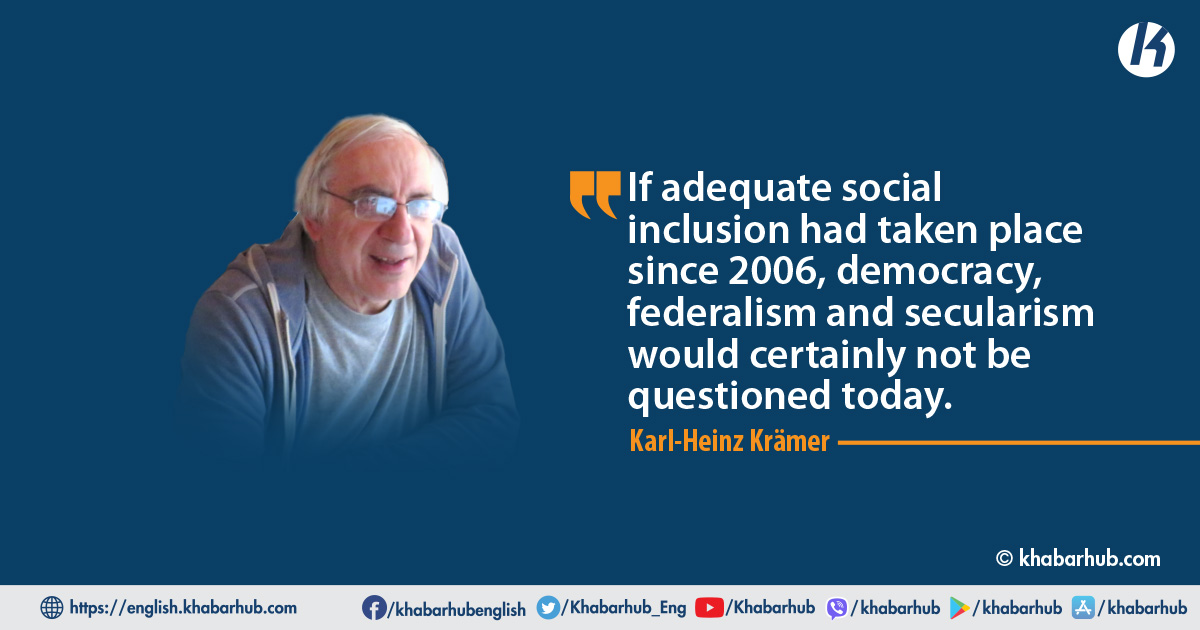The scorn of Nepali politicians knows no bounds. The top leaders of the ruling coalition, for example, repeat in monotone that their electoral alliance is necessary to preserve the constitution, stability and prosperity.
Yet, the ruling coalition has failed miserably on all these three aspects in a similar manner as the Oli government before it.
In reality, the leaders of all the major parties are only concerned with securing their re-election. If only one candidate from the camp of an electoral alliance stands in a constituency, his chances of re-election increase enormously.
Only independent candidates can counteract this speculation if voters realize in sufficient numbers that the same failed top candidates cannot be re-elected under any circumstances in the interest of the country, the people, democracy and the constitution.
Another complicating factor is that this alliance system extremely reduces the number of potential alternative candidates of a party. Only the same old and long-since failed people are up for election.
None of the so-called top politicians respects the constitution and laws. Indeed, they obviously do not even know them. Should they intentionally violate them, they would have to be brought to justice immediately.
Their behavior would be highly malicious and therefore not covered by any passage in the constitution and subordinate laws.
When the top politicians realized that the proposals put forward on the federal state threatened their privileges and state control, they increasingly took over the constitutional discussion themselves.
The failed “top politicians” are a collection of male, predominantly high-caste politicians who want nothing to have to do with their own slogans of 2006, namely advocacy of social inclusion, democracy, federalism and secularism. For all of them, only their own very personal interests in power and all the privileges that go with it count.
16 years have passed since 2006. There can be no talk of social inclusion at all. It may have been in evidence at the time of the first Constituent Assembly election in 2008, but it was systematically dismantled thereafter.
Even the inclusion provisions of the interim constitution were fundamentally disregarded. With the adoption of the new constitution in 2015, this was taken further in a decisive way.
For example, the provision of the interim constitution to respect inclusion in the selection of direct candidates, which was never respected anyway, was removed altogether.
Their proportion, mostly hand-selected males from predominantly so-called high Hindu castes, was increased at the same time.
Only 110 of the 275 MPs are now elected by the people through the proportional representation system (PR). The latter is increasingly misused by top politicians in a nepotistic manner to infiltrate relatives, associates and friends into parliament.
Since hardly any women are nominated as FPTP candidates, the prescribed 33 percent share of women in parliament must be ensured via the PR system.
For example, putting the prime minister’s wife on the PR list guarantees her safe election to parliament. In view of the fact that most of the FPTP candidates are men from the Tagadhari castes or Khas Arya (societal share of these men = 15 per cent), it seems downright grotesque that another 30 per cent Khas Arya are elected to parliament via the PR system.
In this way, an adequate inclusion of “all” social groups, as pompously promised by the top politicians in 2006, will never be achieved.
They don’t even want this, and in 2006 they only talked about it like so many other things that they still pompously promise today but never really mean.
Democracy means the rule of the people. The alliance politicians declare in all seriousness that they are standing up for this when they form an alliance. In reality, however, this is the paternalism of the voters.
They are obviously to be declared too stupid to recognize which politicians are best suited to represent their interests and the needs of the state.
Therefore, the alliance politicians take this agony of choice away from them. Voters are only supposed to cast their votes for the common candidate that the top politicians have previously negotiated in weeks of discussion, regardless of which party that candidate belongs to. That is not democracy, that is oligarchy and the dumbing down of voters.
A look at the history of modern Nepal from the days of Prithvinaran Shah to the last days of the monarchy makes it clear that the close linkage with Hindu political ideas and ideals has been one of the main causes of social inequalities, discrimination and participatory exclusion.
The idea of federalism was brought up in the 1990s by stakeholders of the Janajati groups and the then insurgent CPN (Maoist).
Considering the fact that Nepal had hitherto been an extremely centralised state and that numerous regions and social groups were not really participated, this proposal seemed rational and later found its way into the basis for discussion in the Constituent Assembly.
When the top politicians realized that the proposals put forward on the federal state threatened their privileges and state control, they increasingly took over the constitutional discussion themselves.
Their disagreement on the issue of federalism ultimately led to the failure of the first Constituent Assembly. It was only with the change of majority in the second Constituent Assembly that the NC and CPN (UML) were able to push through their ideas of the federal state, which were more oriented towards the system of the Development Regions of the Panchayat period and denied any historical and ethnic reference even in the naming.
Then, when the constitution was adopted, the inclusively elected representatives in the assembly were not allowed to introduce the concerns and ideas of the social groups they represented anyway.
Article 3 of the 2015 Constitution defines Nepal as a multi-ethnic, multi-religious, multi-lingual and multi-cultural state.
If adequate social inclusion had taken place since 2006, democracy, federalism and secularism would certainly not be questioned today.
Such a state cannot possibly be linked to the religion, language and culture of a single one of these social groups. In this respect, it was obvious to declare Nepal a secular state.
A look at the history of modern Nepal from the days of Prithvinaran Shah to the last days of the monarchy makes it clear that the close linkage with Hindu political ideas and ideals has been one of the main causes of social inequalities, discrimination and participatory exclusion.
Despite the now official commitment to secularism in the constitution (Article 4), there are repeated calls for a revival of the Hindu state.
These come not only from those circles that are party-ideologically committed to this albeit unconstitutional idea, such as the RPP groups, but there are also a number of politicians within the major parties who occasionally flirt with this idea and closely link their notion of Nepali nationalism to Hindu ideals.
The best example of the latter has been provided by former Prime Minister Oli on different occasions.
This may also be related to the fact that most top politicians belong to a cultural environment that is closely linked to Hindu values and ways of thinking and lack necessary understanding of the multi-ethnic society.
If adequate social inclusion had taken place since 2006, democracy, federalism and secularism would certainly not be questioned today.









Comment